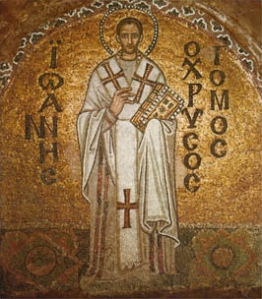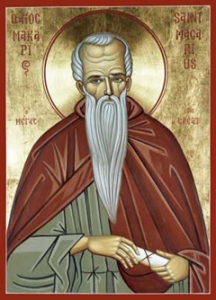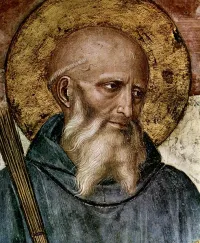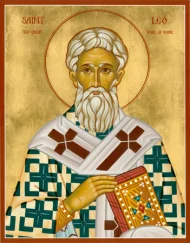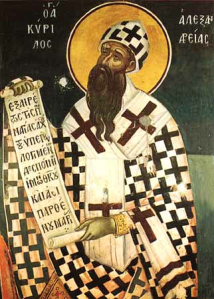 I see here a joyful company of Christian men met together in ready response to the call of Mary, the holy and ever-virgin Mother of God.
I see here a joyful company of Christian men met together in ready response to the call of Mary, the holy and ever-virgin Mother of God.
The great grief that weighed upon me is changed into joy by your presence, venerable Fathers.
Now the beautiful saying of David the psalmist: How good and pleasant it is for brothers to live together in unity (Psalm 133) has come true for us.
Therefore, holy and incomprehensible Trinity, we salute you at whose summons we have come together to this church of Mary, the Theotokos [Mother of God].
Mary, Theotokos, we salute you. Precious vessel, worthy of the whole world’s reverence, you are an ever-shining light, the crown of virginity, the symbol of orthodoxy, an indestructible temple, the place that held Him whom no place can contain, mother and virgin.
Because of you the holy gospels could say: Blessed is he who comes in the name of the Lord.
We salute you, for in your holy womb was confined him who is beyond all limitation.
Because of you the Holy Trinity is glorified and adored; the Cross is called precious and is venerated throughout the world; the heavens exult;
the angels and archangels make merry; demons are put to flight; the devil, that tempter, is thrust down from heaven;
the fallen race of man is taken up on high; all creatures possessed by the madness of idolatry have attained knowledge of the truth;
believers receive holy baptism; the oil of gladness is poured out; the Church is established throughout the world; pagans are brought to repentance.
What more is there to say? Because of you the light of the only-begotten Son of God has shone upon those who sat in darkness and in the shadow of death;
prophets pronounced the word of God; the apostles preached salvation to the Gentiles; the dead are raised to life, and kings rule by the power of the Holy Trinity.
Who can put Mary’s high honor into words? She is both mother and virgin. I am overwhelmed by the wonder of this miracle.
Of course no one could be prevented from living in the house he had built for himself, yet who would invite mockery by asking His own servant to become His mother?
Behold then the joy of the whole universe. Let the union of God and man in the Son of the Virgin Mary fill us with awe and adoration.
Let us fear and worship the undivided Trinity as we sing the praise of the ever-virgin Mary, the holy temple of God, and of God Himself, her Son and spotless Bridegroom.
To Him be glory for ever and ever. Amen.
Cyril of Alexandria (c. 376-444): Homily given at the Council of Ephesus, 361 @ Orthodox Martyria.

